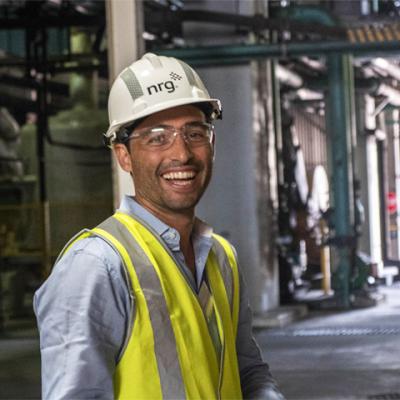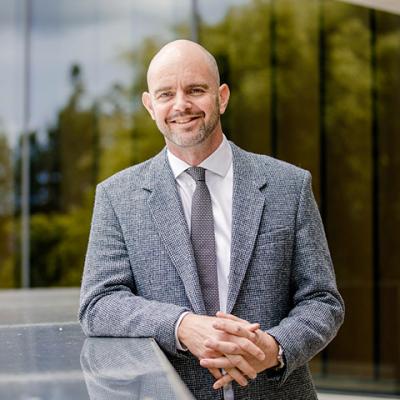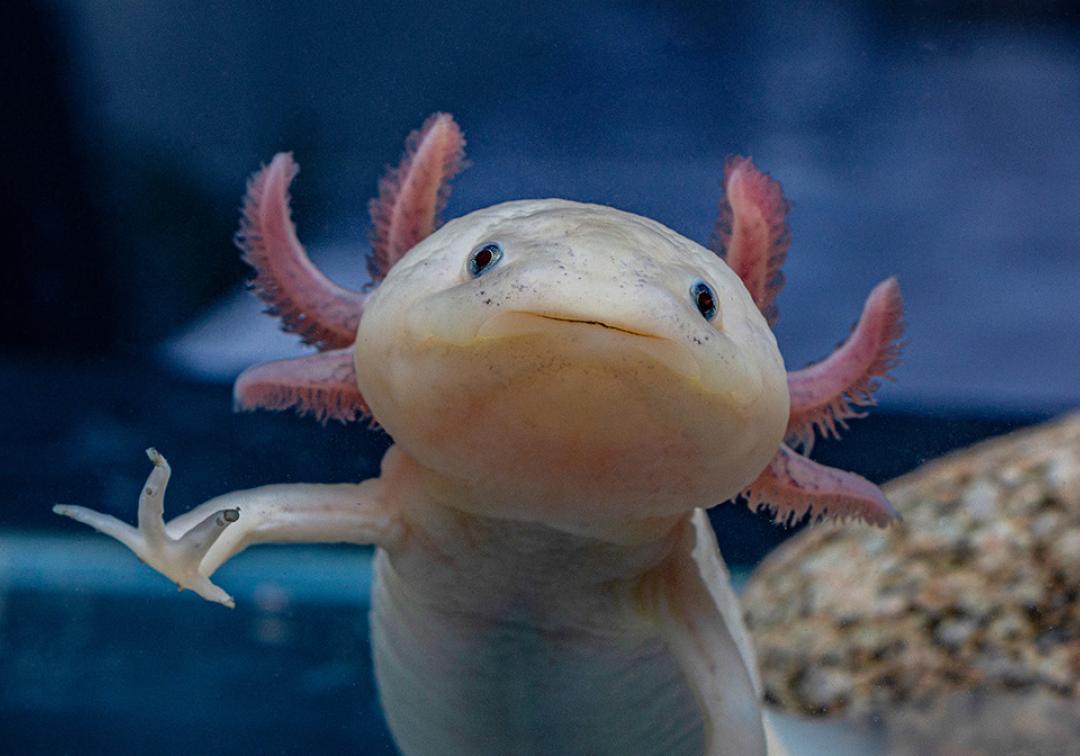
Graduate Diploma in Sustainable Energy
Overview
Prepare for the future and address the challenges at the nexus of energy, climate change and sustainability.
This 1-year program is designed to address complex problems across disciplines and equip you with the knowledge and skills to progress to leadership positions in the energy sector.
You'll learn from leading academics and researchers, as well as national and international practitioners, about the complex nature of energy generation, distribution and supply, and the challenges of transitioning to a sustainable energy future.
The flexible course structure makes it easier for you to integrate your studies into your existing schedule, and your career journey is supported by a range of exclusive networking activities and opportunities to connect with industry partners.
You'll explore the crucial role of technology, policy and innovation in energy project management and development. You'll grasp the importance of balancing the trade-offs between social, economic and environmental considerations. And you'll gain the skill and understanding to tackle the challenges and opportunities that come with a shift toward clean energy and decentralised renewable energy.
Your qualification may also allow you to be accepted into the Master of Sustainable Energy at UQ and accelerate your degree.
Program highlights
- Learn from leaders in energy research who share your desire for a more sustainable, cleaner energy future.
- Study without putting your career on hold, thanks to our intensive-mode course format.
- Gain the critical knowledge and in-demand skills to stand out in your field.
- Benefit from a program validated by top-tier companies to ensure your competitive advantage for career success.
How you'll learn
Your learning experiences are designed to best suit the learning outcomes of the courses you choose.
- Lectures
- Tutorials
- Online study
- Fieldwork
What you'll study
At UQ, degrees are called 'programs' and subjects are called 'courses'. Here's a sample of the courses you could study in this program:
- Sustainable Energy Technologies and Supply Systems
- Energy and Development
- Energy Transitions in Industrial Processes
- Energy Investment and Finance
- Net Zero Pathways for Business
- Energy Strategy, Innovation, and Entrepreneurship
- Energy Efficiency and Transport
- Energy Markets, Law and Policy
Career possibilities
Postgraduate study can take you anywhere. Here are some of the careers you could be on your way to:
- Sustainable energy engineer
- Solar energy technician
- Energy project manager
- Wind energy solutions manager
- Energy and sustainability professional
- Sustainability officer
- Clean energy policy officer
- Energy analyst
- Renewable energy manager
- Sustainability engagement manager
Average annual salary range
Environmental Engineer
seek.com.au
Events
See all events
29 June
Queensland Biology Winter School, Year 12

1 July
International Baccalaureate Research Skills Program
Stories
See all stories
UQ people
Energy poverty: who's got the power to eliminate it?
2-minute read

Study tips
5 must-study environment and sustainability courses
8-minute read

Study tips
UQ science scholarships to help fund your studies
8-minute read
Stories
See all stories
UQ people
Energy poverty: who's got the power to eliminate it?
2-minute read

UQ people
From firefighting robots to rocket science: Vennkkata’s UQ experience
5-minute read

Study tips
5 must-study environment and sustainability courses
8-minute read
Entry requirements
Entry requirements
To be eligible for entry, you'll need:
- a bachelor's degree (or equivalent) in a relevant discipline (see below), or
- to have completed post-secondary studies and 3 years full-time equivalent relevant work experience (see below), or
- to have completed 5 years full-time equivalent relevant work experience (see below).
You must have a grade point average (GPA) of 4.5 on a 7-point scale in your previous qualification
- a bachelor's degree (or equivalent) in a relevant discipline (see below), or
- to have completed post-secondary studies and 3 years full-time equivalent relevant work experience (see below), or
- to have completed 5 years full-time equivalent relevant work experience (see below).
You must have a grade point average (GPA) of 4.5 on a 7-point scale in your previous qualification
Relevant disciplines for previous qualifications
Relevant disciplines include engineering, science, environmental management, economics, commerce, business, public policy, international development, information technology, energy, law or architecture/design.
Relevant work experience
Relevant work experience includes work: in an engineering, science, environmental management, economics, commerce, business, public policy, international development, information technology, energy, law or architecture/design related field. This will need to be supported with evidence.
Evidence of relevant work experience should include a letter from your employer (and/or previous employers) clearly stating the following:
- That you work (or worked) within the specified organisation
- The nature of your work, detailing any relevant duties and responsibilities to the entry criteria above
- The length of time you were in your role/s (i.e demonstrating minimum length for entry) and whether this was full-time, part-time, or casual
- Any further bespoke conditions listed by the entry criteria
Letters will typically be expected to be presented on company letterhead and signed by a manager or HR representative. A CV or resume is not a sufficient document on its own, and must be accompanied by a supporting letter as described above.
All applications based on work experience are subject to an individual assessment.
Entry into a program through work experience does not necessarily provide a pathway into further study in a Masters.
Related programs
Depending on your previous qualifications and current goals, you might want to consider
one of these related programs:
English language requirements
IELTS overall 6.5; reading 6; writing 6; speaking 6; listening 6. For other English Language Proficiency Tests and Scores approved for UQ
TOEFL iBT (including Paper Edition) - Overall 87, listening 19, reading 19, writing 21 and speaking 19.
PTE Academic - Overall Score of 64 and 60 in all sub bands.
BE - A minimum overall grade of 4 plus a minimum grade of C in all macro skills.
CES - Overall 176 and 169 in all sub bands.
OET is not accepted.
There are other ways to meet the English language requirements. For some programs, additional conditions apply.
Inherent requirements
To complete this degree, you have to meet its inherent requirements by demonstrating essential skills and attributes. Read the inherent requirements before you apply.
Student visas
International students who are accepted into full-time study in the Graduate Diploma in Sustainable Energy are eligible to apply for an Australian student visa (subclass 500).
There are a number of requirements you must satisfy before a visa is granted, including the Genuine Student (GS) requirement.
Fees and Scholarships
Indicative annual fee
Approximate yearly cost of tuition (16 units). Your fees will vary according to your selected courses and study load. Fees are reviewed each year and may increase.
$9,315
2025
Approximate yearly cost of full-time tuition (16 units). Your fees will vary according to your study load. Fees are reviewed each year and may increase.
AUD $53,760
2025
Government assistance
Financial aid
As an international student, you might be eligible for financial aid – either from your home country, or from the Australian Government.
HECS-HELP
Domestic places in the Graduate Diploma in Sustainable Energy are Commonwealth supported, as long as you meet all Commonwealth supported place eligibility requirements.
This means the cost of your education is shared between you and the Australian Government. Instead of tuition fees, Commonwealth supported students pay what are called student contribution amounts.
If you have a Commonwealth supported place, you may also be eligible for HECS-HELP. This is an Australian Government loan scheme to assist eligible students with the cost of their student contribution amounts.
Centrelink support
The Australian Government offers a number of income-support payments to eligible Australian university students.
Scholarships
You may be eligible for more than 100 scholarships, including:
How to apply
Applying online
All international applications should be submitted to UQ. If you prefer, you can use an approved UQ agent near you.
The program code for the Graduate Diploma in Sustainable Energy is 5683.
Applying online
All domestic applications should be submitted to UQ.
The program code for the Graduate Diploma in Sustainable Energy is 5683.
Important dates
The closing date for this program is:
- May 30 of the year of commencement.
- To commence study in semester 1 - November 30 of the previous year.
Visa processing times vary. Apply and accept your offer as early as you can.
To learn more about UQ dates, including semester start dates, view the Academic Calendar.
Important dates
The closing date for this program is:
- To commence study in Semester 1 - January 31 of the year of commencement.
- To commence study in Semester 2 - June 30 of the year of commencement.
To learn more about UQ dates, including semester start dates, view the Academic Calendar.
Aboriginal and Torres Strait Islander applicants
For support with applying – or if you have any questions about university life – get in touch with our Aboriginal and Torres Strait Islander Studies (ATSIS) Unit.
Explore other programs
Express yourself. And your interest.
They say choosing a degree is hard, which is why we've made it easy. Register your interest and we'll send you everything you need to know about applying to UQ.





